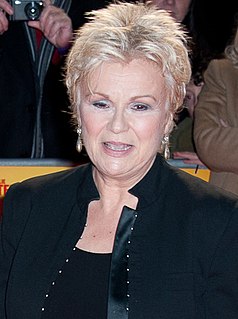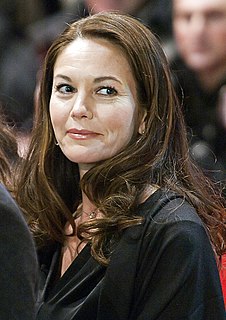A Quote by Madeleine Albright
Well I do think, when there are more women, that the tone of the conversation changes, and also the goals of the conversation change. But it doesn't mean that the whole world would be a lot better if it were totally run by women. If you think that, you've forgotten high school.
Related Quotes
The world would be entirely different if it were run by women. I think it is true that we are more seeking consensus and don't have such big egos and have a variety of different ways of trying to get along. But anybody who says that the world would be better has forgotten high school. It depends on who the women are.
I was in a conversation and someone said: "You know, we were talking about the whole issue of transgender and how it has become so accepted now, and somebody said, 'You know the Oprah show, I think has had a big impact.'" I said, I don't think so. We did several transgender [shows], but we didn't do as much for transgender as I did for, say, abused kids or battered women. And they said, "But no, you started the conversation. You started the conversation and the conversation has led us to here."
It turns out that a lot of women just have a problem with women in power. You know, this whole sisterhood, this whole let's go march for women's rights and, you know, just constantly talking about what women look like or what they wear, or making fun of their choices or presuming that they're not as powerful as the men around. This presumptive negativity about women in power I think is very unfortunate, because let's just try to access that and have a conversation about it, rather than a confrontation about it.
In the early fight for women's rights, the point was not that women were morally superior or better. The conversation was about the difference between men and women - power, privilege, voting rights, etc. Unfortunately, it quickly moved to the "women are better" argument. If this were true in life or in fiction, we wouldn't have any dark or deep characters. We wouldn't have any Salomes, Carmens, Ophelias. We wouldn't have any jealousy or passion.
I went to a girls high school and I went to a women's college and when I first started teaching at Georgetown it had been a single sex school and so they wanted to have some women professors when they went co-ed, and so I originally was hired to start a program there, and really encourage women to go into foreign policy. I always have done that, and I really do think that things are better when women are involved.
I actually felt like college was a much better and more comfortable environment for me than high school was. I think that can largely be attributed to the fact that I go to Barnard, which is a women's college that promotes women's leadership, a strong community and independence which are all things I obviously value. Before I got to school I think I expected most women there to identify as feminist, which I found wasn't necessarily the case, but I loved that I was able to have really intelligent and stimulating conversations with women about feminism no matter how they identified.
It concerns me when people frame the conversation about equal pay about the entertainment business. I don't want the wage gap issue to be viewed as this myopic problem, because it's not. It's in 98 percent of all businesses, and it's easy for people to dismiss this conversation when they think it's around white women entertainers. But this is about all women in America.









































